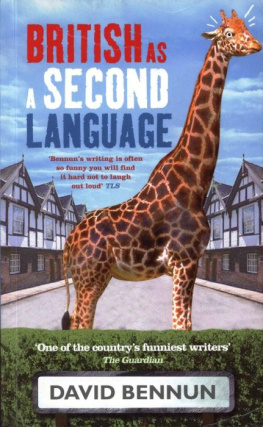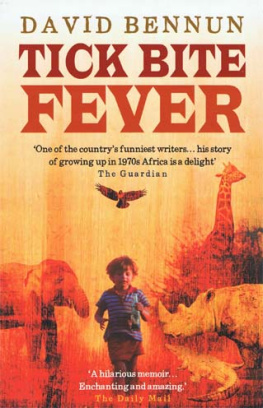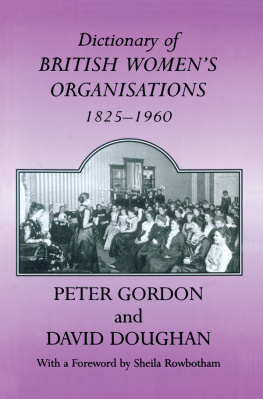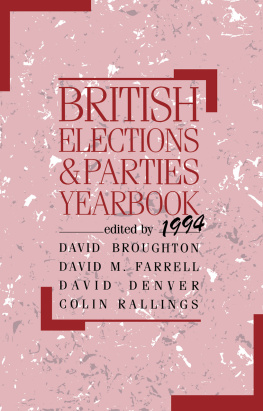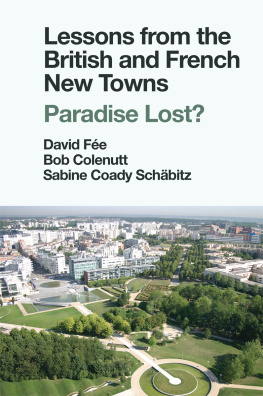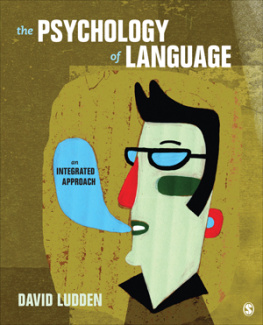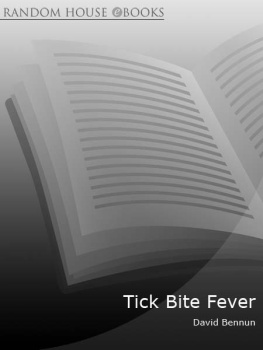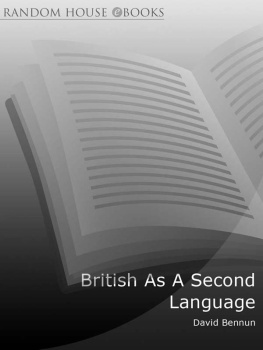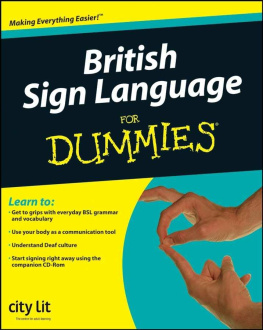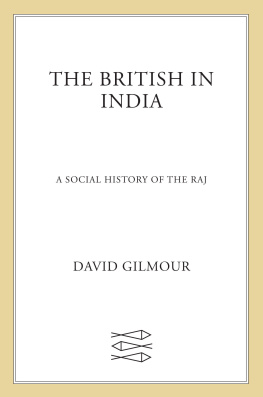David Bennun - British As A Second Language
Here you can read online David Bennun - British As A Second Language full text of the book (entire story) in english for free. Download pdf and epub, get meaning, cover and reviews about this ebook. year: 2005, publisher: Ebury Press, genre: Science. Description of the work, (preface) as well as reviews are available. Best literature library LitArk.com created for fans of good reading and offers a wide selection of genres:
Romance novel
Science fiction
Adventure
Detective
Science
History
Home and family
Prose
Art
Politics
Computer
Non-fiction
Religion
Business
Children
Humor
Choose a favorite category and find really read worthwhile books. Enjoy immersion in the world of imagination, feel the emotions of the characters or learn something new for yourself, make an fascinating discovery.
- Book:British As A Second Language
- Author:
- Publisher:Ebury Press
- Genre:
- Year:2005
- Rating:4 / 5
- Favourites:Add to favourites
- Your mark:
- 80
- 1
- 2
- 3
- 4
- 5
British As A Second Language: summary, description and annotation
We offer to read an annotation, description, summary or preface (depends on what the author of the book "British As A Second Language" wrote himself). If you haven't found the necessary information about the book — write in the comments, we will try to find it.
British As A Second Language — read online for free the complete book (whole text) full work
Below is the text of the book, divided by pages. System saving the place of the last page read, allows you to conveniently read the book "British As A Second Language" online for free, without having to search again every time where you left off. Put a bookmark, and you can go to the page where you finished reading at any time.
Font size:
Interval:
Bookmark:
David Bennun
British as a Second Language
2005
David Bennun had lived in Africa his whole life. At the age of 18 he came to Britain, the mother country. The country he had read about in Punch magazine or seen in films like Chariots of Fire. He was in for a shock. A very big shock indeed: I could not have been less prepared had I spent my life up to that point listening to 30-year-old broadcasts of the Light Programme . In this timely follow-up to the critically acclaimed Tick Bite Fever, David Bennun shows us our own country through the eyes of an alien. With his brilliantly witty turn of phrase we follow his life as a student, his brushes with Bohemia, his troubles renting and buying property, his discovery of British food and his horrors at entering the world of work. From DIY to architecture, sport to alcohol, transport to music and entertainment, David Bennun brilliantly and with ruthless wit deconstructs all these subjects, many of them so dear to the British heart.
M ore people deserve thanks from me than space will allow or this book can justify. I trust that they know who they are, and how much I appreciate their help and support. It would be remiss not to single out Jon Wilde, Ben Marshall and Andrew Mueller, mainly for their encouragement, but also to deflect blame from myself. Im particularly grateful to Karina Mantavia; the chapter on food could not have been written without our many conversations on the subject.
I should point out that with the exception of public figures (politicians, celebrities and the like) and my own family, all names in British as a Second Language have been changed. Folk who see their names appear can rest assured that the characters described arent them. I must also admit to having fused a few characters into composites, although all events are drawn from life.
Finally, let me offer thanks in advance to anyone British who reads this book and doesnt subsequently march up my front path at the head of a lynch mob. Say what you like about Britain I certainly have but there arent many countries where you could get away with this sort of thing. Furthermore, thanks in advance to anyone, British or otherwise, who reads this book, full stop. After all, nobody was ever forced to buy a book at gunpoint. Despite my efforts to persuade my publisher that the idea has its merits.
A t the conclusion of the Second World War, the British Empire covered nearly a quarter of the globe. Within four decades it had shrivelled like a salted slug. By the mid-1980s it comprised the mainland, an adjacent and disproportionately pugnacious (even for Ireland) corner of Ireland, and a cluster of oceanic fly-specks, which served either as staging posts for narcotics traffickers or trysting grounds for several of the worlds hardier seabird species.
I choose this timescale because four decades forty-one years and the odd month, if you wish to quibble elapsed between the two events in British history that hold the greatest personal significance for me. The first, the end of the war, is fairly well known; the second, my taking up residency in the country, inexplicably less so. This book may in some small way alter that imbalance. But I dont see how. Unless, by chance, a copy should fall into the hands of a decrepit Japanese jungle warrior in a Guam cave, and alert him to Hirohitos surrender.
In October 1986 I left my home in Nairobi, Kenya where I had lived for thirteen years, following a two-year stay in Zambia and flew to Heathrow, college-bound. I was eighteen years old. I had, as the saying goes, a suitcase and a dream. A day later, I was in Brighton and down to just the dream. Lufthansa Airlines, with ruthless German inefficiency, had elected to leave the suitcase in Nairobi. A dream is a fine thing to have, but there are times when you would settle for a change of underwear.
The passport I showed at the Heathrow immigration desk confirmed that I was British, and made a much better job of it than I ever have. Ive spent a further eighteen years doing my damnedest to pass for British and only now, when I have all but given up trying, do I seem to be making the slightest headway. It says something about Britain that an Anglophone individual raised in former British colonies and educated in a British curriculum by schools organised on the British model should be wholly baffled by this island. Either that, or it says something even more worrying about the aforementioned individual.
I dont think its all down to me. I have been to countries where the language sounds like castanets, while the dress calls to mind costumes in an avant-garde puppet play, and not found them one fraction so complicated or strange.
There may author clears throat, taps out pipe bowl against leather patches on elbows of tweed jacket, peers over top of half-moon spectacles be records of those eighteen years more thorough than this one, more authoritative and of greater value to social historians. To be honest author retrieves backrest of disintegrating swivel chair, in the process knocking pile of compact discs and dish of empty pistachio shells over his tattered trainers theres no may about it, and to dignify what follows as a record of anything is going it a bit. Ive sketched it from memory; or rather, Ive assembled a collagerelief portrait of Britain from the marks, knocks and bruises its given me as I repeatedly bumped into it, tripped over it and cut myself on it.
I now know, to give just a trifling example, that you shouldnt get your dialling codes mixed up, and subsequently during a telephone call to a business contact in Liverpool ask how things are in Manchester. But I didnt then. I now know that the word knickers applies only to womens underwear, and that announcing youve run out of clean items of same is liable to bring down ridicule upon a head already reeling with Scouse vituperation. But I didnt then. I now know that its imprudent to enter into a ding-dong with a tramp who heckles you over your choice of suit. (That one should have been obvious at the time.)
The point is, Ive been following a long learning curve where the incline, paradoxically, never eases to a gentler gradient. Britains like that. If you werent raised here, it will always be a land of shifting goal-posts. Not to mention abused metaphors. Often, Ive felt like a wartime spy, forever mugging up on local customs, quirks and idioms, always in danger of being exposed during interrogation by my ignorance of bus routes and FA Cup finals.
Those who read my African memoir, Tick Bite Fever (thank you for your kind words, by the way, and good luck with the upcoming attempt to fit all of you inside a phone box), might expect this book to be a sequel of some kind. I wouldnt make that claim for it myself. If my biography since leaving Africa is of interest, its not because of what it might tell you about some scribbler youve never heard of, but because of what it might tell you about Britain.
Ive tried to recount the story of how I learned simultaneously to be British, and something resembling a grown-up (both projects still require a lot of work). Ive documented the people who helped and hindered me along the way, and who introduced me to aspects of British life, sometimes with the best of intentions, sometimes with the most malicious. The friends who schooled me in UK culture. The colleagues who served as role models in inappropriate and self-destructive behaviour. The academics who blitzed my malleable mind with preposterous doctrines imported from the Continent. The market-stall traders, shop-keepers and publicans who seemed convinced that I was engaged in a perpetual wind-up. The patrician acquaintances who treated me with the amused condescension one might show to a monkey in a tuxedo. The scallies who filched my preposterous hat.
Next pageFont size:
Interval:
Bookmark:
Similar books «British As A Second Language»
Look at similar books to British As A Second Language. We have selected literature similar in name and meaning in the hope of providing readers with more options to find new, interesting, not yet read works.
Discussion, reviews of the book British As A Second Language and just readers' own opinions. Leave your comments, write what you think about the work, its meaning or the main characters. Specify what exactly you liked and what you didn't like, and why you think so.

